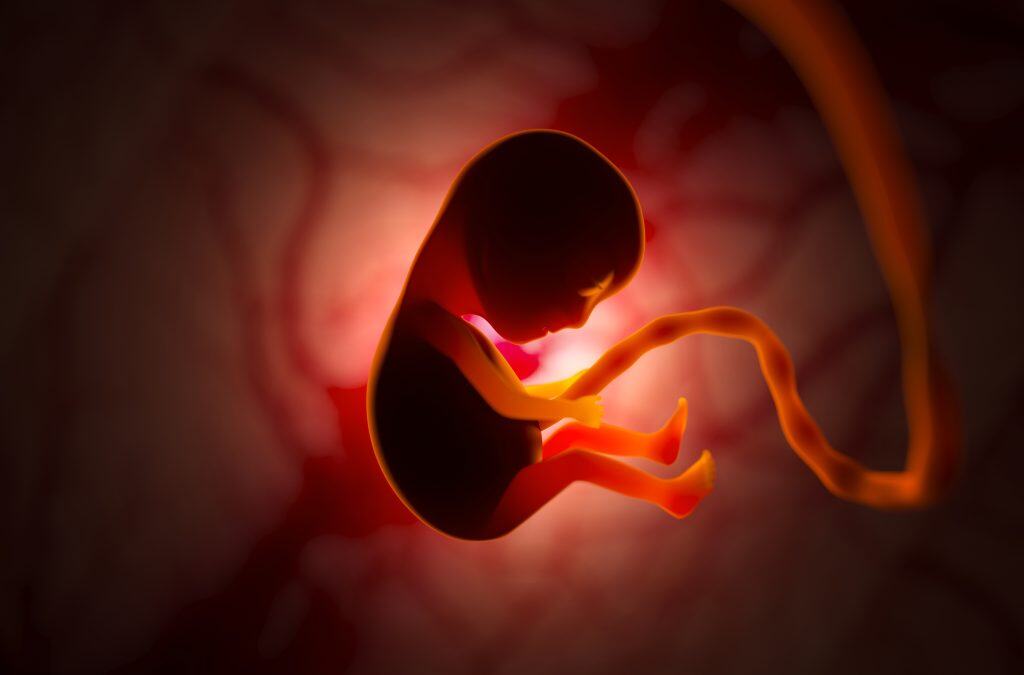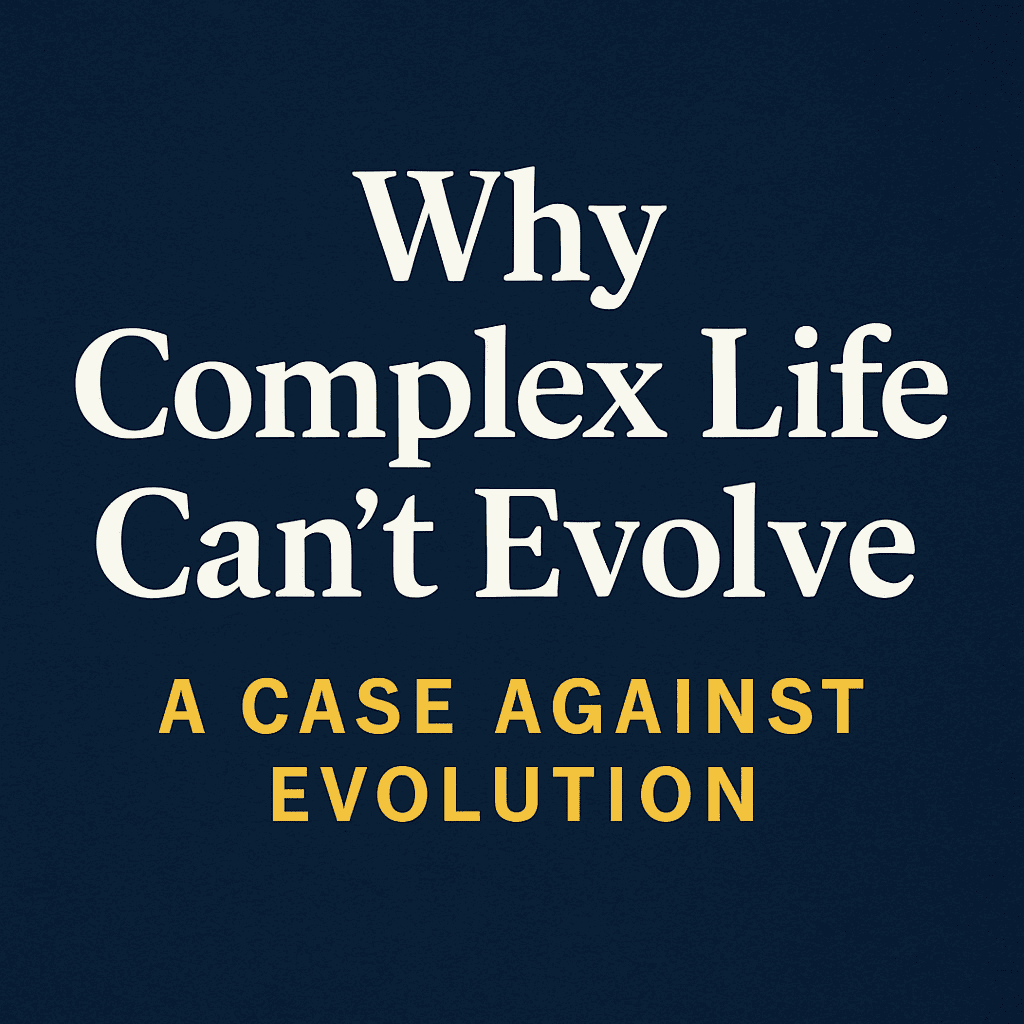Why Complex Life Can’t Evolve: A Case Against Evolution
Why complex life can’t evolve cuts to the heart of evolution’s biggest problem: some systems can’t be built piece by piece. Systems like the eye, the blood clotting cascade, or the bacterial flagellum don’t work in pieces—they only function when all the parts are present. That means they couldn’t evolve slowly over time—they had to be designed from the beginning.

What Darwin Couldn’t Explain
Take the human eye. It needs a lens, retina, cornea, optic nerve, tear ducts, and a whole host of processing systems in the brain—working together at once—for vision to happen. Remove just one part, and the whole thing fails. So how could this evolve one piece at a time over millions of years if the system is useless until all the parts are present? You can’t gradually build an eye through blind mutation. You either have the full package, or you can’t see.
Irreducible Complexity, Plain and Simple
This is what scientists call irreducible complexity—though you don’t need a technical term to grasp it. If a biological system can’t function unless all of its parts are in place, then evolution’s slow, step-by-step process has no answer. Why complex life can’t evolve comes down to this: chance can’t build a system that requires foresight.
Romans 1:20 says that God’s invisible attributes—His eternal power and divine nature—have been clearly seen in what has been made. That includes the eye. That includes the flagellum, the circulatory system, and the human brain. Each one is a living testimony that points beyond itself. These aren’t accidents. They’re announcements.
The Mousetrap Test

Think about how a mousetrap works. It needs a platform, a spring, a bar, and a catch. Remove one, and it doesn’t kind of work—it doesn’t work at all. Evolution assumes that useful traits are selected because they offer a survival advantage. But what happens when nothing works until the whole system is complete? There’s no advantage until the last piece is in place.
That’s one more reason why complex life can’t evolve — because systems that break down when simplified can’t be built through random steps.
Scripture Already Said It
And this isn’t just about complexity—it’s about order. The kind of order you don’t get from random mutation. Psalm 104:24 says, “O LORD, how manifold are your works! In wisdom you have made them all.” God’s design isn’t sloppy. It’s intentional. Intricate. Specific.
When you look at a hummingbird’s wings, or the human immune system, or the way blood coagulates at exactly the right time to prevent bleeding to death, you’re seeing more than biology. You’re seeing wisdom.
Job 38:4 asks, “Where were you when I laid the foundation of the earth?” It’s not just poetic—it’s a reality check that we’re creatures, not creators. And it’s yet another reminder why complex life can’t evolve—because design always requires a Designer.
The Real Reason This Is Ignored
And yet our culture treats human opinion as more trustworthy than divine revelation. It’s not that the evidence isn’t there. It’s that the truth is uncomfortable. Because if complex life can’t evolve, then someone had to create it. And if someone created it, we are accountable to Him.
Colossians 1:17 says that “in him all things hold together.” Not “once held,” or “used to hold”—but hold. Present tense. God didn’t just spark life and step back. He upholds every system and cell, every law of gravity, every heartbeat. That includes the fragile, interdependent mechanisms of life itself.
This Isn’t Anti-Science—It’s Truth
For those who don’t believe, this may sound like faith clashing with science. But it’s not. It’s truth exposing assumptions. Evolution is not a neutral theory. It’s built on the belief that there is no God.
Everything must have a natural explanation—even when the natural explanation breaks down. And that’s exactly what happens when you examine life’s interdependent complexity. It’s why complex life can’t evolve in a world that refuses to consider design.
Confidence Without Compromise
For believers, this isn’t just about winning a debate—it’s about recovering confidence. You don’t need to bend Genesis. Or apologize for what Scripture says.

The deeper we dig into the design of life, the more it echoes what God already revealed: we were made. Not mutated. Not mindless. Made.
What’s at Stake
So why does this matter? Because how you believe life began will shape how you believe life should be lived. If we are the result of chance, then morality, meaning, and truth are all up for grabs.
But if we were created, then our Creator has the right to define those things. And He already has.
Why complex life can’t evolve isn’t some fringe idea—it’s a reality that sits in plain view. The eye that reads this. The brain that processes it. The heart that beats while you consider what’s true.
Every part of your body is a witness that you were not thrown together by time and luck.
You were designed.
Take the Next Step
Complex life demands a Creator—and the Bible reveals who He is.
You were made with purpose, formed with wisdom, and invited into truth.
Want to understand what the Bible really teaches about election?
👉 Download my free pamphlet: Chosen by Grace
A simple, Scripture-focused guide to God’s sovereignty in salvation.
Discover why salvation depends not on man’s will or effort, but on God who has mercy.
Walt Roderick is a Christian writer who cares more about biblical clarity than online applause. He writes to strengthen believers and confront spiritual drift.






